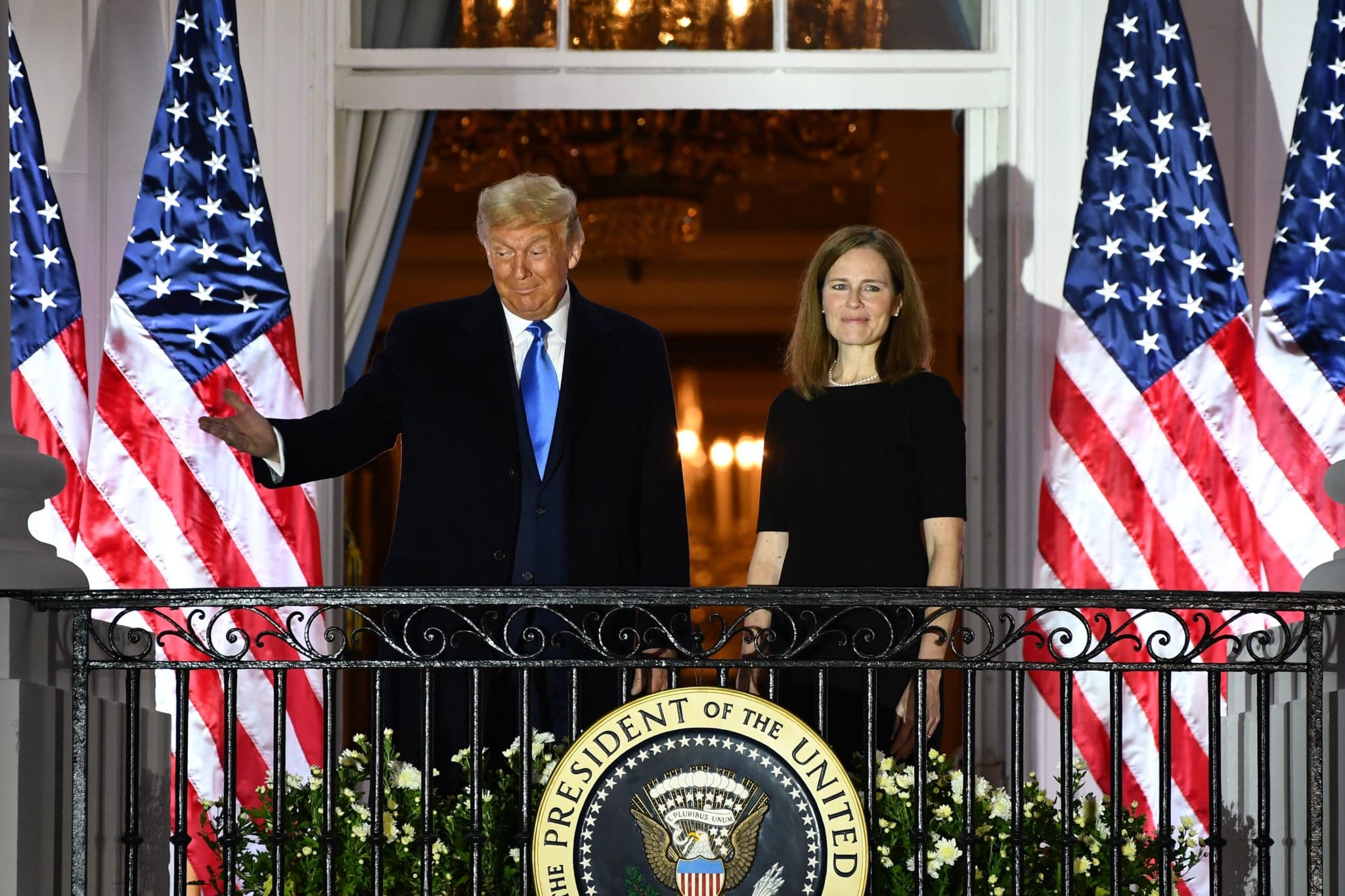Donald Trump and Amy Coney Barrett after she was sworn in. (Getty)
As the US presidential election dominates news tickers and Twitter timelines, the Supreme Court heard a case Wednesday morning (4 November) that could throw the nation’s anti-discrimination laws into disarray.
In what will become the first fight for justice Amy Coney Barrett, whose judicial principles rooted in faith sparked alarm among LGBT+ activists, the case saw religion and principles rawly clash.
Justices considered whether Philadelphia may exclude a Catholic agency that does not work with same-sex couples from the city’s foster-care system.
If justices vote in favour of religious groups, the verdict would rip through the country’s anti-discrimination laws – weakening laws protecting other minority groups, such as Muslims and Jews.
At the Supreme Court, city officials and Catholic agency spar with children’s futures caught in the crosshairs.
The city of Philadelphia, which contracts with private foster care agencies, is duelling with Catholic Social Services over the city’s ban on both religious and secular government contractors discriminating against LGBT+ people.
City officials stopped placements with the agency following a 2018 article in The Philadelphia Inquirer that described its policies against placing children with same-sex couples.
The Catholic Social Services agency, as well as several foster parents, jostled to sound the alarm – they sued the city, saying the call violated First Amendment rights to religious freedom and free speech.
A three-judge panel of the United States Court of Appeals for the Third Circuit, in Philadelphia, ruled against the bloc.
Now, the religious foster care agency is relying on another decision, Masterpiece Cakeshop v Colorado Civil Rights Commission, to be the backbone of its case against the city. Levelling that, yes, they should be able to discriminate queer couples, as to not to be able to would amount of hostility based on anti-religious prejudice.
What verdict Supreme Court justices give will decide the future of the 5,000 children in protective custody, said Leslie Cooper, deputy director of the ACLU LGBT & HIV Project, during a hearing briefing attended by PinkNews.
“They will lose what might be the only shot at having a family,” she said, noting that is justice do indeed side with the agency, “every state across the country will be forced to permit such discrimination in the public child welfare system, despite the damaging consequences for children.”
Cooper stressed the rippled effect the case could have “beyond foster care for individuals and families that depend on a whole broad range of government entities that contract with the private sector, from homelessness to food banks.
“If governments are required to permit their contractors to discriminate based on religious beliefs people could be turned away from the political services to compare LGBTQ Jewish Muslim woman or otherwise do not meet the contracting to religious standards.”
Above all Paige Davies, who with her wife have opened up their home to foster children for years, the case, Fulton v. City of Philadelphia, No 19-123, is not just a clash of anti-discrimination principles and claims of conscience, but about family.
“The thought that we could have not been able to impact these children’s lives the way we have over the past years of being foster parents,” she said, “because we could have been turned away from an agency because we’re a same-sex couple is something that I wouldn’t even think would be existing in 2020.”
